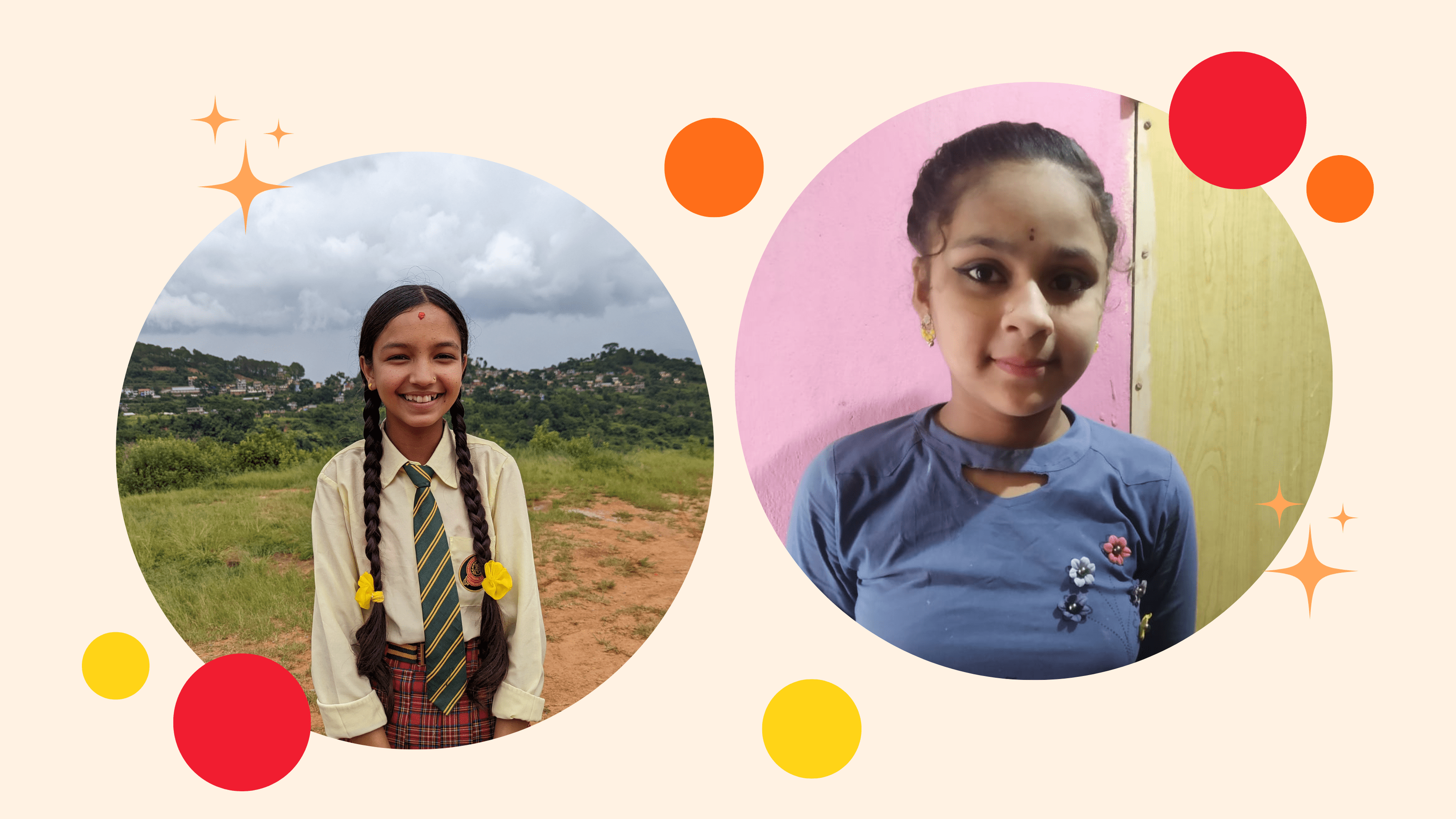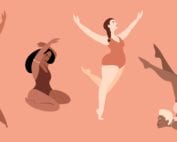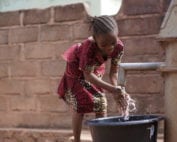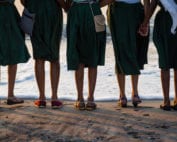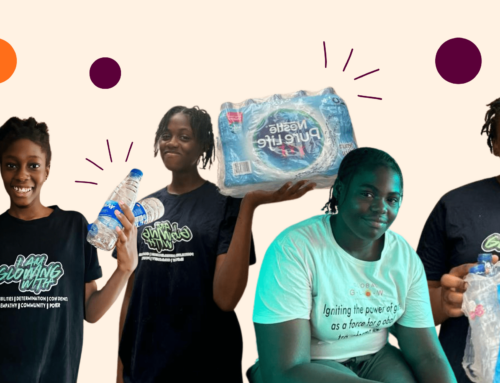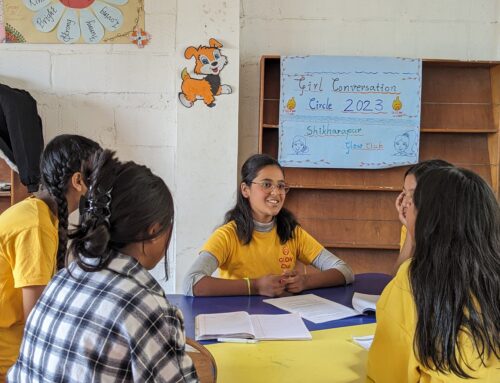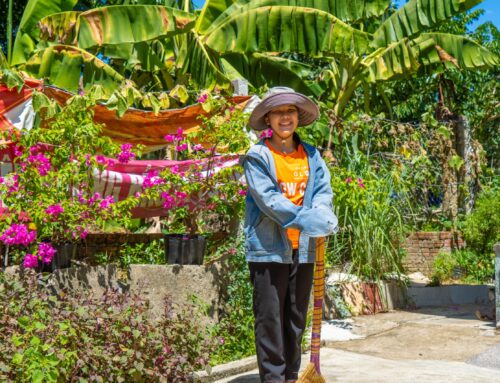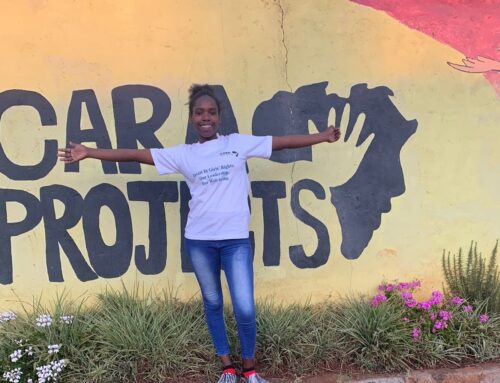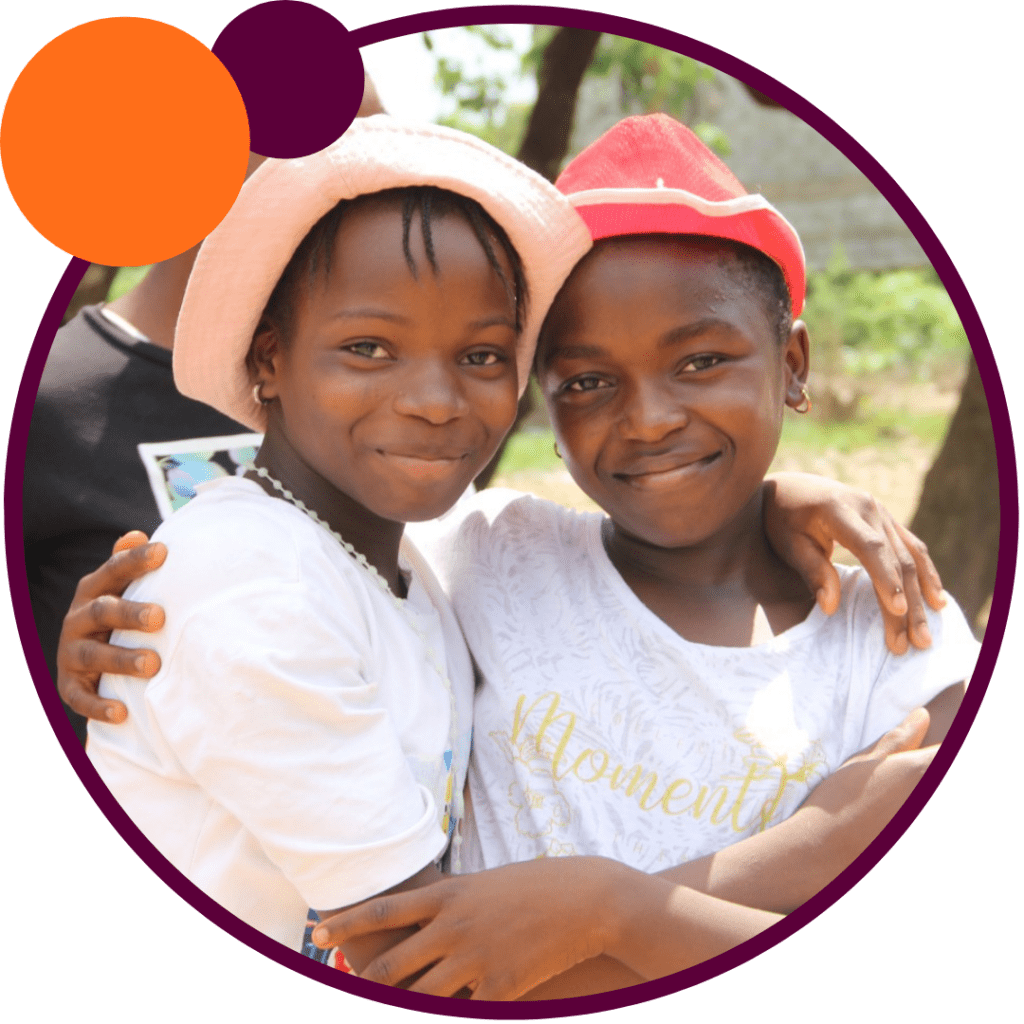Girl Advocates from Nepal and India are Taking Action for Menstrual Equity
Around the world, period stigma and period poverty keep girls out of school. At any moment in time, at least 800 million people are on their period; however, 500 million women and girls still lack access to menstrual products and hygiene facilities: a significant barrier to menstrual equity.
Menstruation is a normal bodily function and a key indicator of health for adolescent and teen girls. Still, various forms of period stigma reiterate the mentality that menstruation is taboo and unclean.
Worse, period stigma perpetuates period poverty: the lack of access to menstrual products and menstrual health education.

In Nepal, menstruation signals impurity (especially in rural areas of the country) as nine out of ten girls and women face community restrictions while on their period. Likewise, in India, 40% of adolescent girls skip school when they menstruate due to lack of privacy in schools or lack of access to products.
Global G.L.O.W. Girl Advocacy Committee members, Safalta and Sai, know that menstruation should never be a barrier to a girls’ health and learning. Beyond their understanding lies their commitment to advancing menstrual equity in their own communities. Access to menstrual products, hygiene facilities, and menstrual health education is a matter of human rights.
Hear how these two girl advocate are taking action against period poverty and period stigma, in their own words:
Safalta is Fighting for Menstrual Equity in Nepal
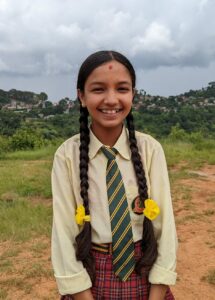
I am bound by a lot of responsibilities and duties. Being a girl from a poor family, I got to know a lot of problems prevailing in my society. One of them is lack of menstrual hygiene. I have seen my maternal sister get an infection due to lack of menstrual hygiene. Although not far from the capital city, sometimes I may not find a sanitary pad at the time of my period.
my period.
As my village is bound by superstition, women are discriminated against at the time of their period. Nobody cares aboutthem at the time of their period. Due to a lack of knowledge about menstrual hygiene, many women in my village are infected with different diseases.
Pads are of very high cost in my village. Due to high cost, women are not able to buy sanitary pads at the time of their menstruation. They often use dirty clothes, which can lead to infection.
“I hope to conduct a mass awareness program about proper use of sanitary pads. I will encourage my family, neighbors, political leaders, and other girls and women to raise their voices for problems that women are facing.”
To reduce such problems in my village I will put my full effort into making girls in my village aware of using sanitary pads at the time of their period. I hope to conduct a mass awareness program about proper use of sanitary pads.
Not only this, I will encourage my family, neighbors, political leaders, and other girls and women to raise their voices for problems that women are facing.
I want to bring a new revolution to my society. I will raise my voice to provide affordable sanitary pads for women. But this is not possible through my single effort. I will burn the fire of revolution, and I hope you will join me.
Sai is Fighting for Menstrual Equity in India
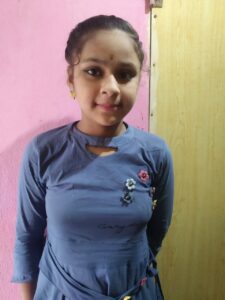
I want to advocate for girls, as we are being treated unequally to boys. In my community, menstruation is still considered a taboo. Women and young girls have poor knowledge of menstrual hygiene. Cultural and social practices are a major hurdle in creating awareness on menstrual hygiene.

“Cultural and social practices are a major hurdle in creating awareness on menstrual hygiene.”
Periods are one of the main causes for girls missing school. I am even facing a challenge to attend school during my period due to restrictions from family members.
So, I want to work on creating awareness on menstrual hygiene management, discriminatory social norms, and cultural taboos in India.
I hope you will join in this movement for healthy, educated, and strong girls.
May 28th is Menstrual Hygiene Day, a global day of advocacy dedicated to making menstruation a normal aspect of life by 2030. Join Safata and Sai in their work to end the cycle of period stigma. Download Global G.L.O.W.’s Talk About It. Period. Social media toolkit, and use the hashtag #TalkAboutItPeriod to help bring awareness and normalize menstruation.
Global G.L.O.W. partners with community-based organizations in 30 countries to operate mentorship-driven programs for girls ages 10-18. Our SEL-based curriculum gives girls the tools to express themselves, advocate for their rights, and challenge the most critical barriers to achieving gender equality. Support our work at globalgirlsglow.org/donate.

